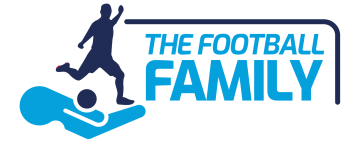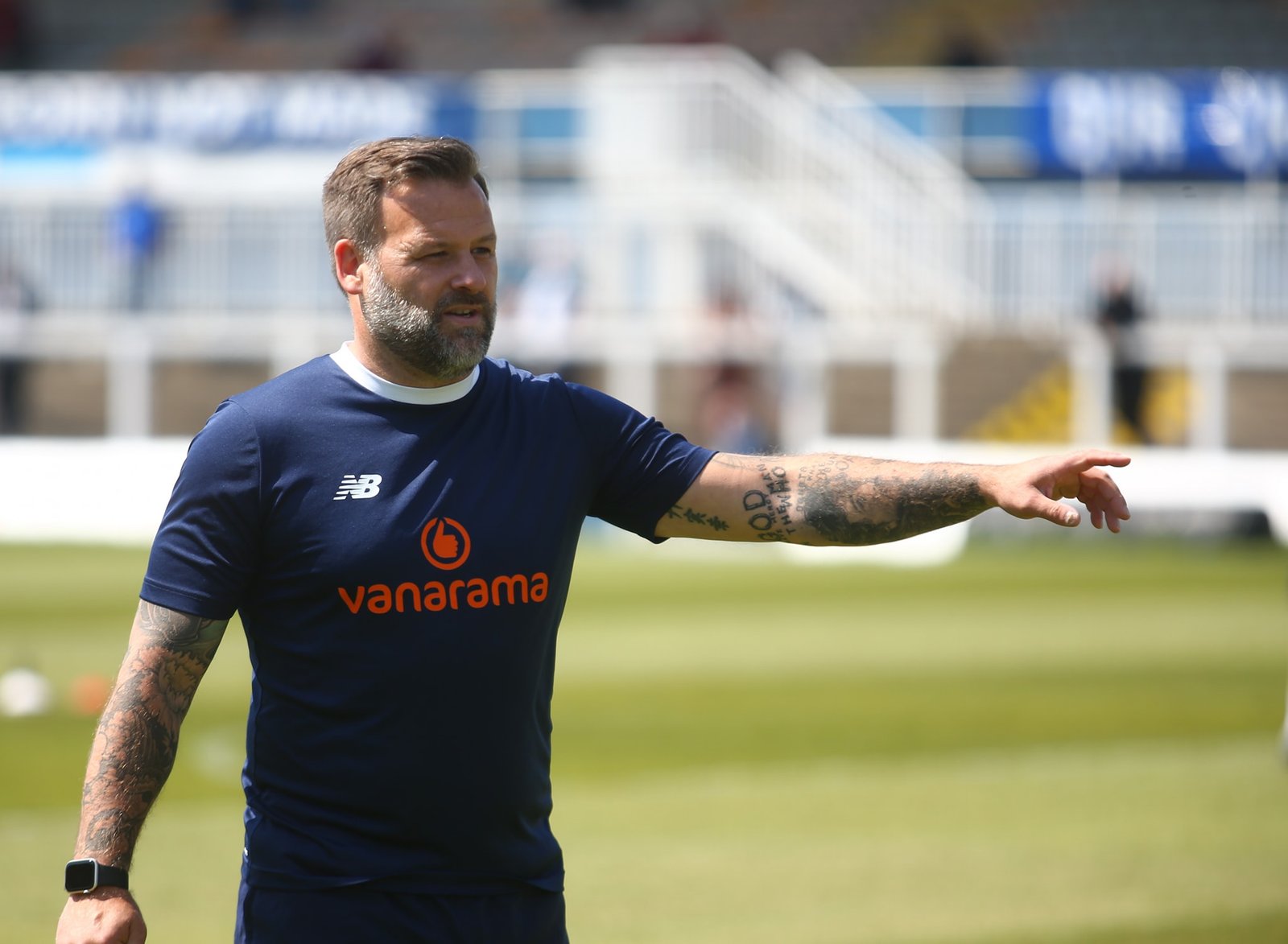At this time of the summer, the transfer market is in full swing. Seasoned professionals looking for new contracts, while thousands of young academy players are released into an uncertain future.
Our Assistant Manager, Louis Langdown, runs The Football Family along with ex-Terra, Adam Wilde. The non-profit organisation is dedicated to helping the mental health and wellbeing of young footballers released from academies.
The Football Family makes contact with released players and offers them help, guidance, mentoring and support to find a way back into the game, or adjust to life outside of football.
Kenny Legg caught up with Louis to find out more about The Football Family.

Can you tell us about where the idea for The Football Family came from and how long you’ve been going?
Firstly, the issue has always been there, letting go of youngsters remains one of the most traumatic moments working in the game, and it affects both coaching staff and the players. The catalyst for myself and Adam was whilst managing in non-league we’d see the mood and performance of young players we’d signed on loan from pro clubs fluctuate all the time. Performances you can almost dismiss, however when they change from happy engaging lads to withdrawn and moody it’s easy to see not all is well.
Adam has been through it as a young pro when his contract wasn’t renewed at Cambridge United, I’ve sat on panels deciding on the futures of U18’s at Premier League teams and we can empathise with these lads and we wanted to help the transition to non-league and a new career. We asked Southampton footballers Jack Stephens and Sam McQueen for a coffee some 4 years ago, and the idea of mentoring hit us early and it grew into raising awareness, chairing meetings, conducting research with Universities, and championing change.

How many players have you worked with since you began in 2018?
It’s difficult to put a number on this, we are geographically limited and many of our conversations and support strategies have focused on parents, coaches, and the social network of the released player as the football family organically grew. It wasn’t the plan, but when you look at it those people around the player are crucial in helping to raise self-esteem and confidence, which are the prime side effects of being released. We can track our connections however and we’re over 400 from the time our website went live.
How have attitudes to mental health in football changed since you started The Football Family?
There’s been a paradigm shift in the promotion and awareness of mental health-related issues and an acceptance by many to communicate their stories helps to quash the often-negative stigma attached to anyone who openly struggles. It’s not without prejudice and often there comes a backlash for those that are more well-known and in the public eye. However, their experiences are powerful and connect with those that need it. Wellbeing is something we can all actively participate in, and employers are creating initiatives to encourage the pursuit of healthy minds just as much as they did 20 odd years ago when it was all about healthy bodies. Unfortunately, it often takes a tragedy of the highest order to revaluate what we do and why we do it, and in football that came with the harrowing and terribly sad news that former Man City scholar Jeremy Wisden took his own life after struggling to deal with no longer being a footballer. Language and expectations have changed and changed for the better, the human is becoming the focus and not the end goal of churning out a footballer at all costs
You have a team of mentors who offer their support to released players. How important is it for released players to speak to those who’ve been through a similar process?
This has been great. As much as Adam and I think we are hip and youngsters will listen to us, the fact is, we are not. So, to have a footballer closer in age take an interest in their life and football seems to work very well. The pros are fully aware the roles could have been reversed, they may have been released and looking for direction and social support. We’ve found a real desire from the pros in wanting to get involved and they are really happy to give back in some way. Football isn’t unique, but it is an environment and culture that unless you’ve been in it, it’s hard to comprehend the pull, togetherness and belonging it creates. Imagine being with your friends and playing football every day as a child and being positively reinforced of your talent every time you transition to the next stage in your football, roll on that 8-year old child by ten years only for that to be removed. For us, it made sense that you would find solace or support in those that ‘know’ football.
We’ve also found players are going back to their clubs and taking ownership to invest time in the youth team players and get to know them which is wonderful to hear. Sometimes they have no idea how important their behaviour or interaction with the young players can be. This came about from one of our workshops at Solent University where released players shared how they had never spoken to a first-team player in the same position they play, and they had been with the club 10 years. This shocked me and shocked the mentors, even if the training facilities for the first team and academy are on different sites, this seemed crazy.

Andreas Robinson played for Southampton from the age of 8 to 21, coming through the Academy with Adam Lallana, Gareth Bale and Theo Walcott. His story represents that of many young players who move out of the professional game. What can younger players learn from his story?
Robbo is a perfect example of what a journey may look like for many scholars or young pro’s that get released. He provides a longitudinal view of the trials and tribulations that these boys may encounter. There are moments of despair, disappointment, anguish and a few tears that culminate in a period of falling out of love with the game. His path meanders and he finds his feet with non-league football and details the need for good support from friends and family, and his journey starts to turn into positive moments. A new career and plenty of success in his football and he’s playing National League football and able to reflect with honesty on his journey and be proud of his 13 years at Southampton FC with a maturity that wasn’t probably there as a young man. He shows that there is a way, there is time, and there is always something new.
Are there good examples of clubs supporting their academy players for life outside of the game?
Yes, there are plenty. There are some good people and good clubs placing emphasis and resource into helping a young man in mapping new careers and interests, and of course, stemming the negative effects on their mental health.
Liverpool FC, among others, opened their doors to us last year and they are ahead of the curve and have initiated an alumni programme and tasked dedicated staff to support released players, Alex Inglethorpe (Academy Manager) was forthright in his belief and strategy to ensure every child who represents Liverpool FC have a connection for life. Brighton are also a forward-thinking club and they have invested in a holistic wellbeing programme for staff, and they have created new job roles that are an exciting shift in the way clubs operate. My hometown club, Southampton, are also at the forefront of player welfare and have been early pacesetters in the player care role. Chelsea are also showing their intent in providing informed practice with the introduction of PhD research on the area of youth transition and deselection. However, this is often work kept within the confines of the club and not always celebrated. This is changing and it is necessary to exchange good practice. There is movement and the LFE are now picking this up with their Alumni Voice and research into former scholars’ experiences.
Do you think stakeholders in the game (clubs, FA, PFA) do more to support released players adjust to life outside the academy system?
Yes! It is a must! I’m at a loss to understand why the Premier League, or the FA have not made aftercare a priority. The EPPP certainly made clubs safer and more accountable while you’re a player, but to neglect an after-care policy is a major omission. Clubs are innovative and have created care, others are far, far behind and prioritise resource in other areas. It will take direction from the governing bodies, but I do think it’s coming. I really believe there is an appetite for change and improvement.
What are your key messages to players released from academy’s who might be struggling?
Be proud of your journey, think fondly of your experiences and remember the skill set you have developed through football that positions you so well to flourish in any new environment. You’re a team player, a competitor, a committed individual able to perform under pressure to reach a common goal. You’re a healthy and strong young man who’s educated in nutrition and understands how the body and mind function. Football will always be there, and the journey isn’t over at 18, 19, or 20. Look at Ben White, look at Tyrone Mings. Or look at Andreas Robinson, look for help from family or friends, or drop us a line.
Do not wait for others to reach out, take ownership now and plan your next step.
You can learn more about The Football Family on their website and follow them on Twitter.


